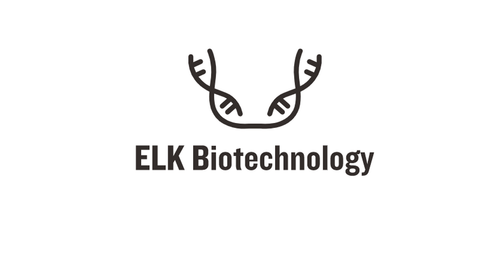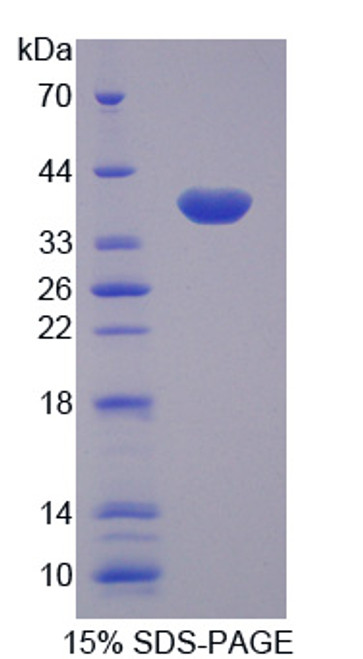Product Description
Human Tumor necrosis factor alpha-induced protein 3 (TNFAIP3) ELISA Kit | AE14042HU | Abebio
Species Reactivity: Human (Homo sapiens)
Abbreviation: TNFAIP3
Alternative Name: A20; MGC104522; MGC138687; MGC138688; OTUD7C; TNFA1P2; tumor necrosis factor inducible protein A20
Application: ELISA
Range: 78.12-5000 pg/mL
Sensitivity: 29 pg/mL
Intra-Assay: ≤4.1%
Inter-Assay: ≤7.3%
Recovery: 0, 99
Sample Type: Serum, Plasma, Other biological fluids
Detection Method: Sandwich
Analysis Method : Quantitive
Test Principale: This assay employs a two-site sandwich ELISA to quantitate TNFAIP3 in samples. An antibody specific for TNFAIP3 has been pre-coated onto a microplate. Standards and samples are pipetted into the wells and anyTNFAIP3 present is bound by the immobilized antibody. After removing any unbound substances, a biotin-conjugated antibody specific for TNFAIP3 is added to the wells. After washing, Streptavidin conjugated Horseradish Peroxidase (HRP) is added to the wells. Following a wash to remove any unbound avidin-enzyme reagent, a substrate solution is added to the wells and color develops in proportion to the amount of TNFAIP3 bound in the initial step. The color development is stopped and the intensity of the color is measured.
Product Overview: Tumor necrosis factor, alpha-induced protein 3 is a zinc finger protein, and has been shown to inhibit NF-kappa B activation as well as TNF-mediated apoptosis. Knockout studies of a similar gene in mice suggested that this gene is critical for limiting inflammation by terminating TNF-induced NF-kappa B responses. Essential component of a ubiquitin-editing protein complex, comprising also RNF11, ITCH and TAX1BP1, that ensures the transient nature of inflammatory signaling pathways. Upon TNF stimulation, deubiquitinates 'Lys-63'-polyubiquitin chains on RIPK1 and catalyzes the formation of 'Lys-48'-polyubiquitin chains. This leads to RIPK1 proteosomal degradation and consequently termination of the TNF- or LPS-mediated activation of NF-kappa-B.
Stability: The stability of ELISA kit is determined by the loss rate of activity. The loss rate of this kit is less than 5% within the expiration date under appropriate storage condition. The loss rate was determined by accelerated thermal degradation test. Keep the kit at 37°C for 4 and 7 days, and compare O.D.values of the kit kept at 37°C with that of at recommended temperature. (referring from China Biological Products Standard, which was calculated by the Arrhenius equation. For ELISA kit, 4 days storage at 37°C can be considered as 6 months at 2 - 8°C, which means 7 days at 37°C equaling 12 months at 2 - 8°C) .
 Euro
Euro
 USD
USD
 British Pound
British Pound
 NULL
NULL












